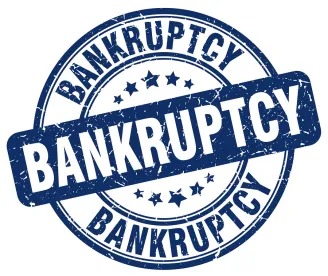Retail and restaurant Chapter 11 bankruptcy filings continued to grab headlines in 2019. According to CNBC, there were 23 retail bankruptcies in 2019, compared with 17 in 2018.
Six (6) retailers and one (1) restaurant chain that were on our “Watch List” in 2019 filed for Chapter 11 protection – Charming Charlie (Part 2), Forever 21, Payless (Part 2), Charlotte Russe, Things Remembered, Gymboree (Part 2), and Perkins & Marie Callender.
As the New Year unfolds, the following are 10 retailers to watch for possible Chapter 11 filing(s) in the year ahead.
- Pier 1 Imports – a Filing this Month? Gone are the days when shoppers would go to Pier 1 for a unique product. Now those items can be purchased online or at other retailers. According to CNBC, the company plans to close up to 450 of its 936 stores, cut 40% of its headquarters staff, and shutter distribution centers as part of cost-cutting measures. The company has had a string of quarters with declining sales. Recently, it reported its third-quarter loss at $59 million, after same-store sales declined more than 13% last year. Bloomberg reports that the company is preparing for a bankruptcy filing.
- Fairway Markets – Chapter 22 Filing? The company filed for Chapter 11 in May 2016, successfully emerging in less than three (3) months in July that year. The New York Post reports that the company is preparing another bankruptcy filing after failing to find a buyer for its 14 stores in the New York tri-state area, including four (4) liquor stores, making it a Chapter 22 bankruptcy filing (two Chapter 11s in a row). Fairway recently closed its Nanuet, New York store in September. Currently, the company has more than $170 million in debt that matures in 2023/2024.
- Bed Bath & Beyond – With more than 1,500 stores in the U.S. and Canada, including buybuy BABY and Cost Plus World Market brands, the retailer has reported that it will close about 60 stores in 2020, according to The Motley Fool. The big-box retailer saw a slide in its stock from $70.00 a share in 2013 to $7.34 in 2019. In November 2019, the company began internal moves that helped raise the share price. However, fundamentally, the company has been unsuccessful in battling online retailers, unlike its competitors The Home Depot, Target, and The TJX Companies.
- Ascena Retail Group – Last year, with more than 3,400 stores, the owner of women’s clothing brands (including Loft, Ann Taylor, Justice, Lane Bryant, and Catherines) continued belt-tightening with turn-over in the c-suite, selling a majority stake in Maurices and its shuttering of Dressbarn. At the end of 2019, the company reported that sales declined 4%, it maintains $1.3 billion in long-term debt and had an operating loss of $354 million. Although, according to Chain Store Age, the CEO announced in October that bankruptcy was not being considered as an option. Still, the women’s retail clothing market is difficult with online sales and competition. Unless a turnaround occurs soon, bankruptcy may be the only option.
- GameStop – Going the Way of Blockbuster Video? Retail Dive reports that the company was on pace to close about 200 of its 5,000 stores worldwide by the end of 2019. In a press release, the company cited second-quarter global sales decreasing by more than 14%. With more than 3,500 stores in the U.S., the company continues to adjust to changing purchasing habits of consumers. Could GameStop be the next Blockbuster, now that gamers can purchase games easily online through their consoles?
- Francesca’s – According to Alpha Street, the Houston-based, boutique women’s apparel and accessory retailer continued to cut costs by closing more than 10 of its 700-plus stores and laying off a sizeable chunk of its corporate staff. However, last summer, the company secured $10 million in new financing. Despite the belt-tightening, the company appears poised for a possible Chapter 11 filing as it struggles to both drive traffic towards its key fashion trends and compete due to the continuing shift in customer demand away from physical stores to online venues.
- Crew – A Sense of “Ennui” in Stores, According to Vanity Fair? The privately held retailer continues trying to make itself an upscale retailer, yet it also introduced an athleisure line as well as a separate denim line – Madewell – to the mix. The Wall Street Journal reported that it spun off Madewell, the denim line, permitting a deleveraged balance sheet that may assist in the short term. However, the company’s more than $120 million in losses during the last two (2) years, its identity crisis, and the sense of boredom in any of its stores, as noted by Vanity Fair, is a challenge.
- JC Penney – According to Business Insider, despite the fact that the company stabilized its profitability in 2019, it still struggles to create an experience for consumers. The 117-year old company has more than $4 billion in debt, the majority which is due in 2021 according to Bisnow. Although the company has been taking on initiatives to reinvent its more than 800 stores, it may be a little too late – much like Sears? The Observer recently opined that a purchase by Best Buy, Wayfair, or Lowes might actually make the company relevant again.
- Stein Mart – Retail Dive reports that despite a positive profit in the first quarter of 2019, the company’s top sales have fallen for the past few years. The company has taken steps to install self-service Amazon lockers in about 200 of its 283 stores in an effort to drive traffic. With tight margins and online retailers, the company faces difficulties and could be forced to file for bankruptcy protection.
- Rite Aid – Investor Place reports with more than 2,400 stores, Rite-Aid remains challenged and is engaged in a never-ending turnaround plan. Although the bankruptcy filing of Fred’s retail pharmacy may have freed up some market share, the company continues to fight for survival in a competitive pharmacy environment. A bankruptcy may be the only way to reduce the footprint to truly turn the company around.
If you are an owner, developer, and/or landlord, it is important to know and understand how these changes will affect your shopping center.



 />i
/>i

